Nostalgia: Cork barracks had key role in Irish military history
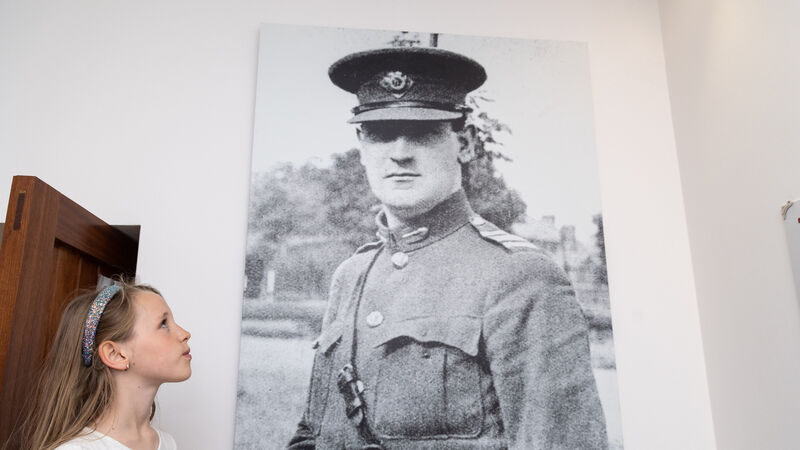
Millie Long looking at a picture of Michael Collins in Collins Barracks. Picture: Darragh Kane
THE Government recently announced a move to transform the Defence Forces.
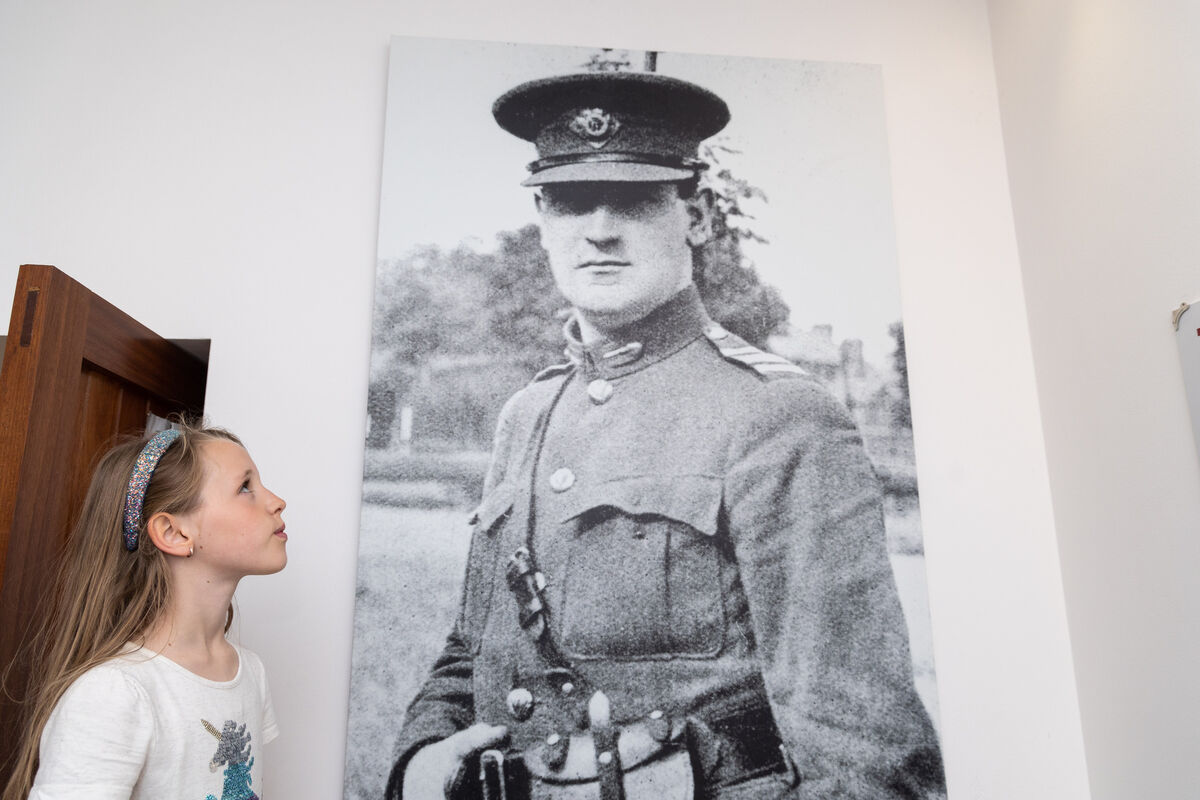
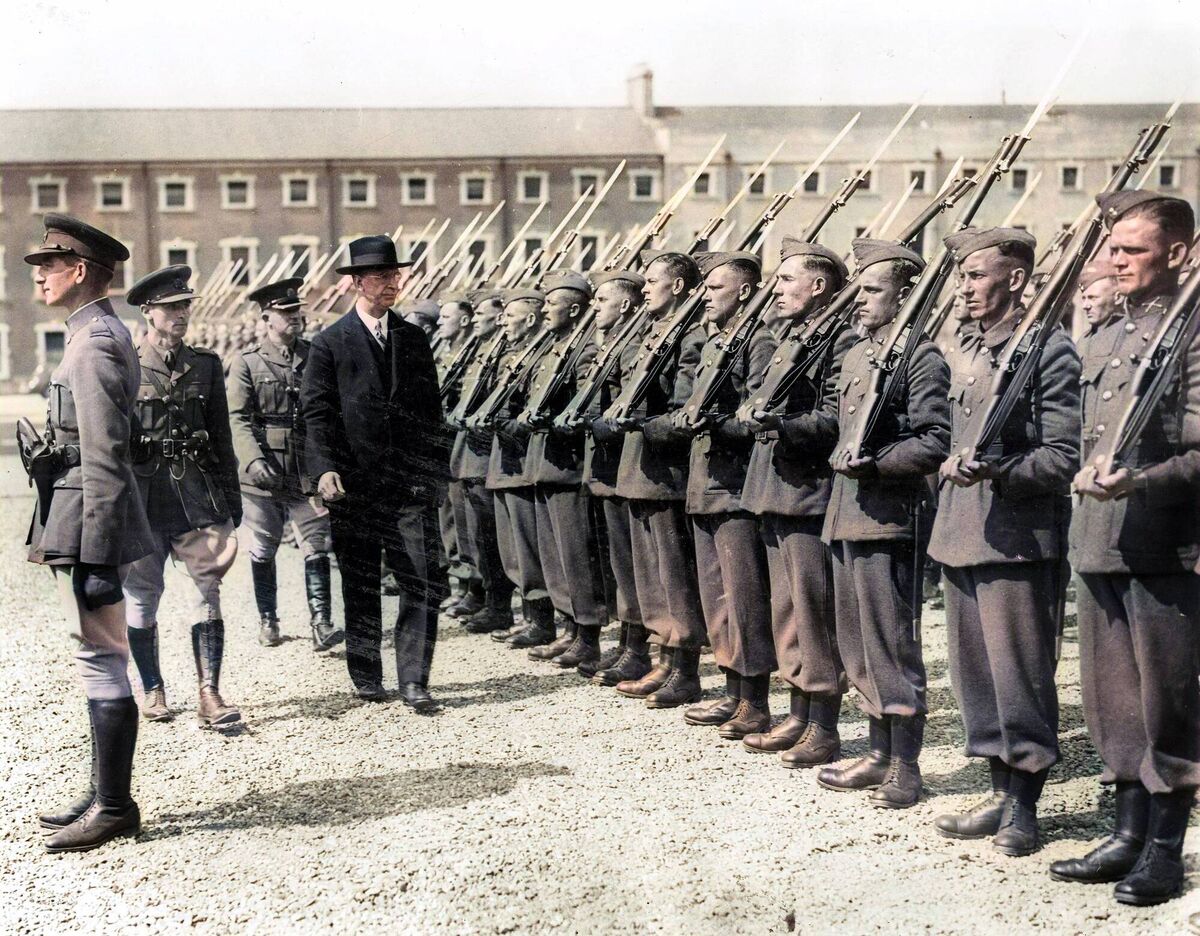
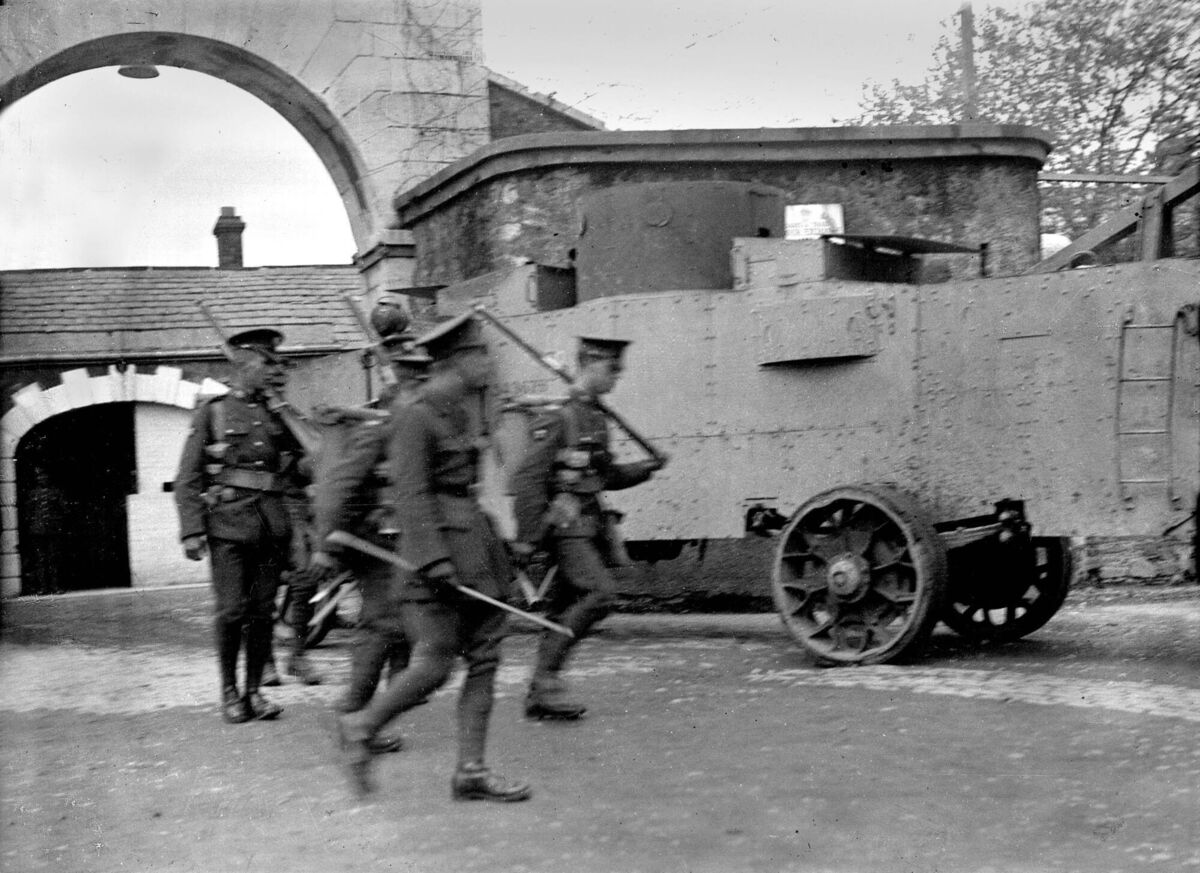
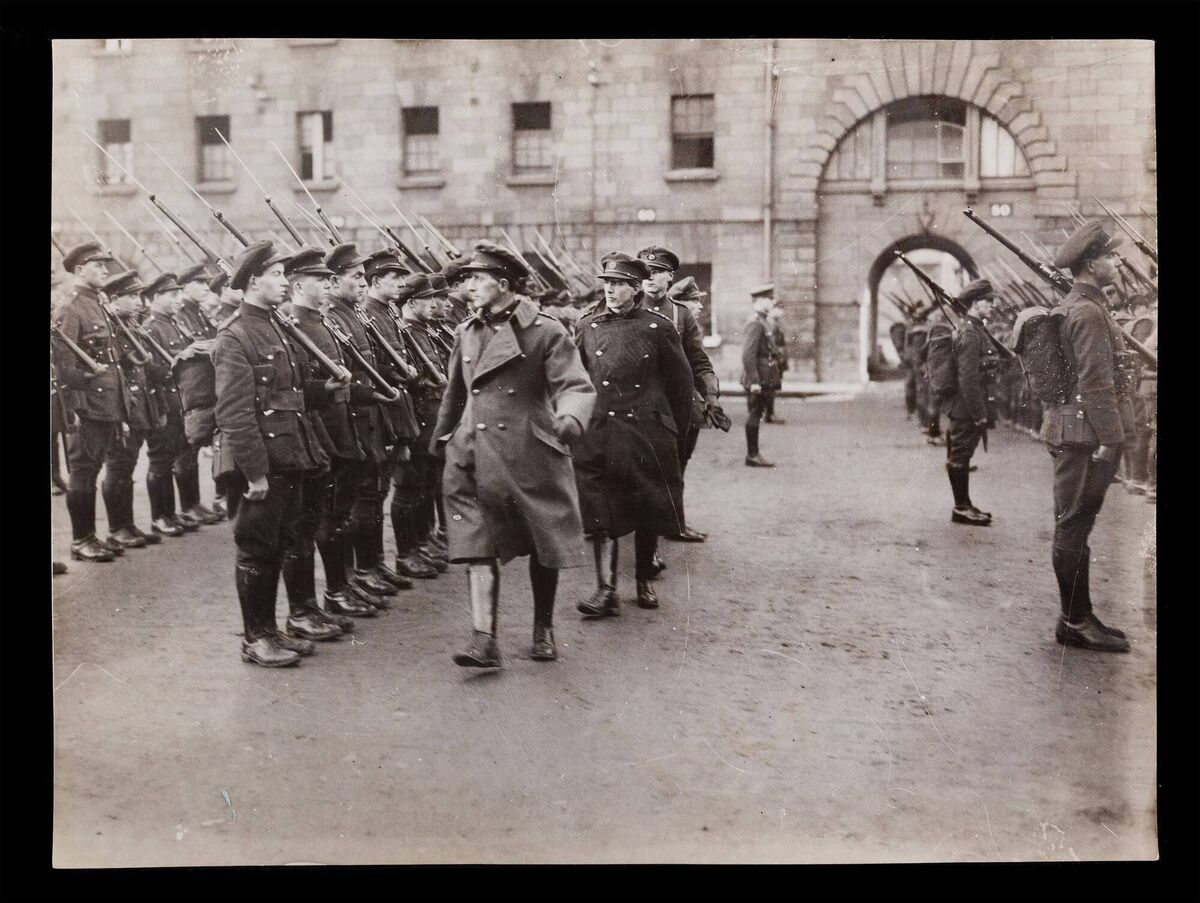
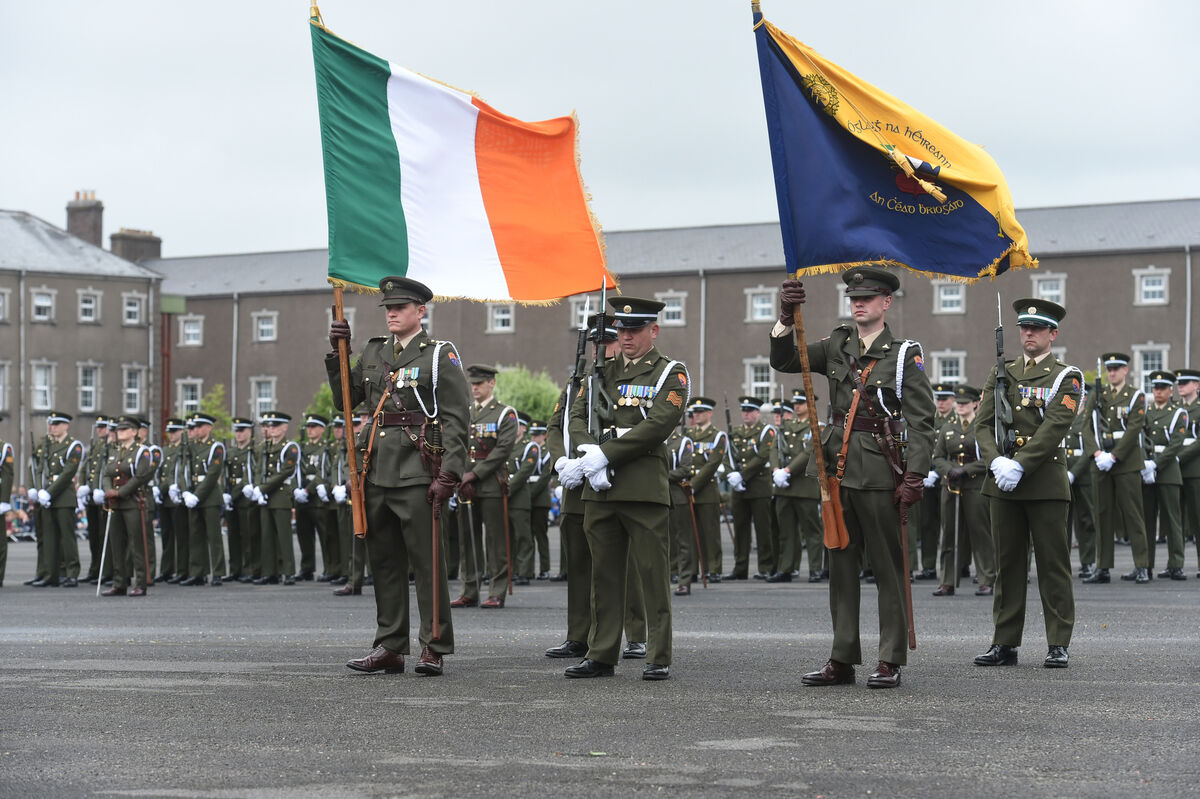

Millie Long looking at a picture of Michael Collins in Collins Barracks. Picture: Darragh Kane
THE Government recently announced a move to transform the Defence Forces.
Minister for Defence Simon Coveney said the government had approved a move to ‘Level of Ambition 2’ (LOA2), as set out in the capability framework devised by the Commission on the Defence Forces.
It will result in the defence budget rising from €1.1 billion to €1.5 billion by 2028, the largest increase in defence funding in the history of the State.
This will allow for the required substantial transformation and investment in recruitment and equipment that were identified by the Commission.

Ahead of the changes, we take a look at the history of Cork’s Collins Barracks.
Key
Collins Barracks has overlooked Cork for more than 200 years, playing a key role through revolutions, wars, and peace-keeping missions around the world.

Known first as the ‘New Barracks’, the city military stronghold owes its origins to the French Revolutionary Wars.
Built between 1801 and 1806, the barracks was designed to house and train over 2,000 men and more than 230 horses, as Britain expanded its armies to counter revolutionary France.
Even before the barracks came to be, the site was recognised as a strategic one from early Christian times, situated on an ancient entrenchment called Rath Mór (the Great Fort).
For more than a century under the ownership of British Forces, the barracks played a significant role as a staging post during major conflicts such as the Napoleonic War, Crimean War, Zulu War, Boer War, and the First World War.

Just after the turn of the century in 1901, the death of Queen Victoria was the catalyst for a name change, and the Cork stronghold was renamed Victoria Barracks.
As the 20th century ushered in great political change in Ireland, Victoria Barracks was a key backdrop to the War of Independence and subsequent Civil War. Earlier this summer, emotional centenary celebrations marked 100 years since British troops were evacuated from Victoria Barracks on May 18, 1922.
As a result of the Anglo-Irish Treaty of 1921 which concluded the violent War of Independence, it was agreed that the barracks were to be handed over to the Provisional Irish Government.

At the time, it was home to the largest installation of the British military in the south of the country, and 100 years ago, British soldiers marched out of the barracks’ gates for the last time.
Expectation
Speaking at the centenary event this year, retired Company quarter master, Sergeant Gerry White, described the “air of expectation” that filled the city of Cork as the last British garrison packed their kit.

During the bitter Civil War that soon followed, the military base was renamed Collins Barracks after his death in August, 1922 — a significant moment in Cork’s Civil War history.
That moment also has an upcoming centenary commemoration later this month.
Troops in Collins Barracks maintained vigilance against a potential German invasion during World War II, and since Ireland joined the United Nations in 1955, it continues to serve a role in peacekeeping missions all over the world.
Keep up-to-date with the top stories in Cork with our daily newsletter straight to your inbox.
Please click here for our privacy statement.
Have you downloaded your FREE  App?
App?

It's all about Cork!
Add Echolive.ie to your home screen - easy access to Cork news, views, sport and more